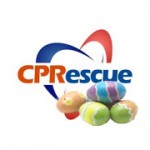 The annual tradition of coloring and hidding Easter eggs is upon us. To make sure this continues to be a fun family activity, we should take a few precautions. When dealing with eggs we need to be aware of the risk of Salmonella or food poisoning. Also it is important to keep our family pets safe as well. Here are some safety tips to keep in mind.
The annual tradition of coloring and hidding Easter eggs is upon us. To make sure this continues to be a fun family activity, we should take a few precautions. When dealing with eggs we need to be aware of the risk of Salmonella or food poisoning. Also it is important to keep our family pets safe as well. Here are some safety tips to keep in mind.
Eggs
– Buy eggs that are refrigerated and keep them refrigerated before you boil them in preparation for decorating. Always check expiration dates.
– Water temperature must be 185-190 degrees F, when boiling eggs. Cool your eggs in cold water or allow cooling slowly at room temperature.
– When boiling eggs, the protective coating is washed away, leaving open pores in the shell where harmful bacteria could enter. Be sure to refrigerate eggs within two hours of cooking and use them within a week.
– Discard cracked or broken eggs.
– Do not leave eggs un-refrigerated for more than two hours. If so, discard them.
– Hide easter eggs in places that are protected from dirt, pets, and other bacteria sources.
– Limit the hiding and hunting time for real eggs to two hours. Harmful bacteria will begin to grow after eggs have been unrefrigerated for more than 2 hours.
– Any eggs found hours later or the next day should be thrown out — not eaten!
– You may want to consider using plastic eggs instead of real eggs for Easter egg hunts.
Animal Safety
– Easter Lily is toxic and can be fatal to cats.
– The Easter Lily leaves can cause feline kidney failure, if chewed.
– Artificial “grass” in most Easter baskets can be ingested and cause obstruction in cats an dogs.
(Signs can be loss of appetite and/or vomiting)
– Don’t forget that chocolate contains xanthines, which can be toxic to dogs.
(Signs can be hyper excitability, restlessness, increased heart rate, muscle tremors, vomiting and diarrhea)
Leave a Reply
 The annual tradition of coloring and hidding Easter eggs is upon us. To make sure this continues to be a fun family activity, we should take a few precautions. When dealing with eggs we need to be aware of the risk of Salmonella or food poisoning. Also it is important to keep our family pets safe as well. Here are some safety tips to keep in mind.
The annual tradition of coloring and hidding Easter eggs is upon us. To make sure this continues to be a fun family activity, we should take a few precautions. When dealing with eggs we need to be aware of the risk of Salmonella or food poisoning. Also it is important to keep our family pets safe as well. Here are some safety tips to keep in mind.






